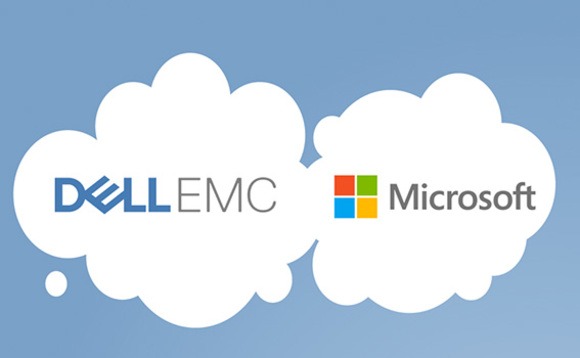Recently, Microsoft hosted its annual Windows Server Summit – a virtual event that encourage you to join wherever you may be! One of the major themes was “Innovations in Microsoft Hybrid Strategy: a deep dive into Microsoft’s hyper-converged technologies and how to add hybrid services from Azure.” Cloud based services are an integral and flexible part of any future ready hybrid cloud system. Cloud services help IT organizations quickly transform service delivery to agile modern hybrid cloud environments.
Dell EMC customers are using Azure Cloud Services today to modernize core IT capabilities and to extend on premise data center capabilities with Azure cloud-based services. As one of Microsoft’s biggest partners, Dell EMC has collaborated with Microsoft to develop hybrid solutions for years. Microsoft Azure Stack HCI is a hyper-converged Windows Server 2019 cluster that uses validated hardware to run virtualized workloads on premises, optionally connecting to Azure services for cloud-based backup, site recovery and more. Dell EMC’s Azure-dedicated portfolio today includes support for both Azure Stack and Azure Stack HCI. Azure Stack, an extension of Azure on-premises that can run on Dell EMC hyper-converged engineered systems, allows users to consistently build and run cloud applications anywhere across the Azure ecosystem, using the Azure Portal with Azure IaaS and PaaS services. With Azure Stack HCI, a BYO on-prem private cloud solution, users can run virtualized workloads in a familiar and flexible way – but with the efficiency of Dell EMC hyper-converged infrastructure – and connect to Azure public for hybrid scenarios such as cloud backup and cloud-based monitoring.
These two different offerings provide the customers with the ability to choose how they achieve a hybrid cloud environment in Azure that addresses their unique goals. The latest announcement includes the addition of Windows Server 2019 to all 15 configurations under WSSD; the availability of Azure Stack on the Dell EMC PowerEdge R840 platform; and a metered usage consumption model for Azure Stack infrastructure with Flex on Demand from Dell Financial Services.
This new offering leverages the Windows Server Datacenter license to provide software defined storage, using Hyper-V virtualization down to the storage level. These multi-node clusters provide cost effective volumes with high performance and low latency, using common management tools. In addition to the previous 15 use case-driven configurations under WSSD, Dell EMC has added:
- A new upgrade service, taking customers from existing Storage Spaces Direct Ready Node architectures to Windows Server 2019 with continued support entitlement
- Best in class systems management by unifying and automating management capabilities for modern infrastructures with the OpenManage Integration for Windows Admin Center console
2019 has also been a big year for Dell EMC Cloud for Microsoft Azure Stack as the company has released several additions to the platform:
- Dell EMC’s Tactical Azure Stack to bring Azure-based services from the cloud to the edge. This ruggedized version of Azure Stack provides an Azure-consistent cloud in a harsh, mobile, or forward-deployed environment.
- Azure Stack is now available on Dell EMC’s PowerEdge R840 platform. As an all-flash system, it is a four-socket server validated and tested for Microsoft’s hybrid cloud solution. Designed and configured to support high performance and data-intensive workloads in Azure Stack environments, the R840 enables customers to leverage the maximum levels of computing resources and SSD capacity available in a 2U footprint.
- Dell EMC now offer a metered usage consumption model for Azure Stack infrastructure, with Flex on Demand from Dell Financial Services. This measured service capability aligns with the OPEX type consumption model that customers desire.
Dell EMC has a long history of co-engineering with Microsoft and these new enhancements further strengthen the joint portfolio across hyperconverged infrastructure and hybrid cloud solutions. By working together to deliver innovative services faster and more frequently, both the brands can become a real partner of change for customers in this Digital Transformation era. We believe that the only way to maintain leadership is by ensuring customer delight. We work closely with our customers to help them transform their IT thereby, helping them to increase their productivity, performance, scalability and also reducing the footprint in their data center through our HCI solutions.
















